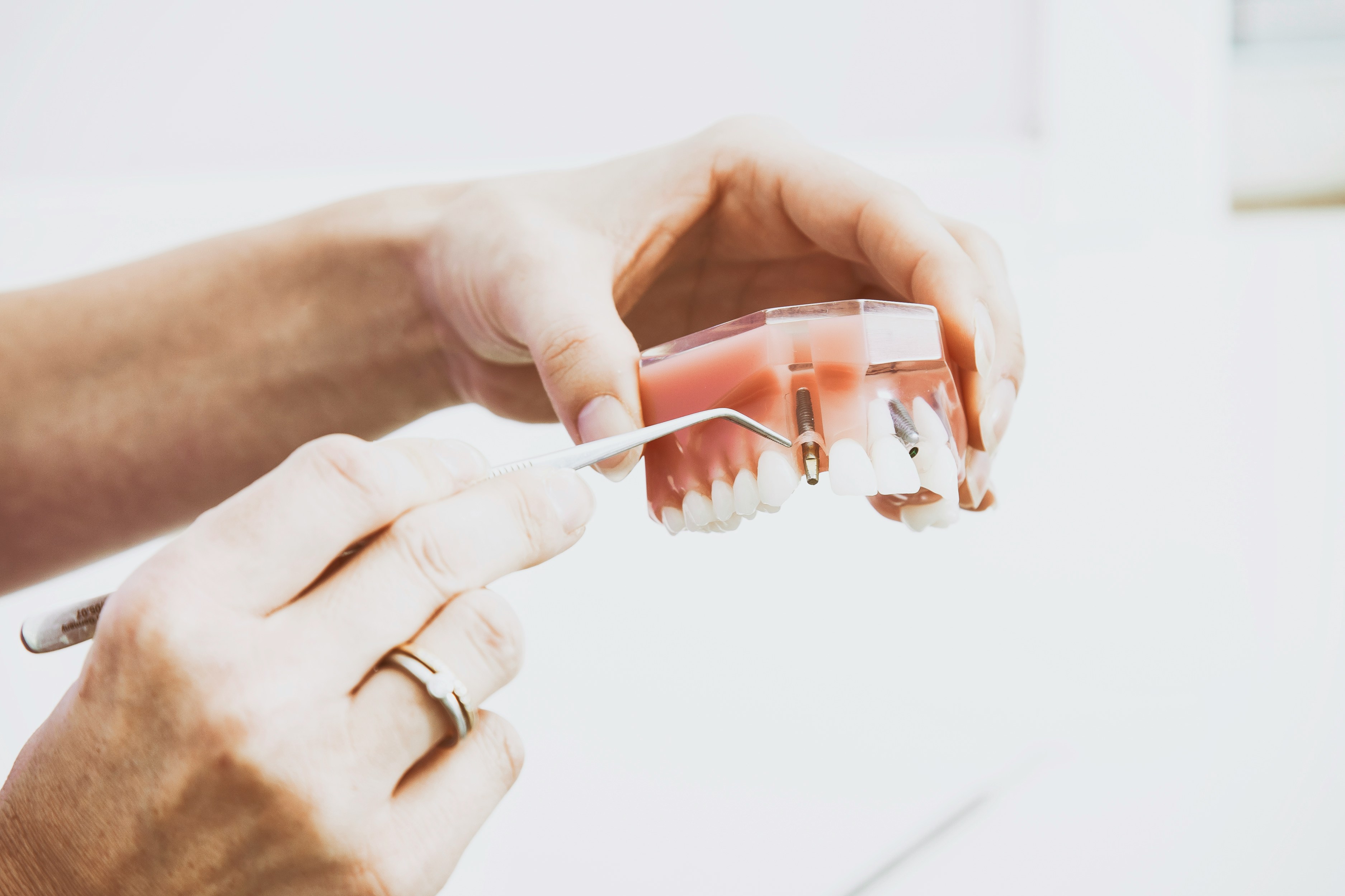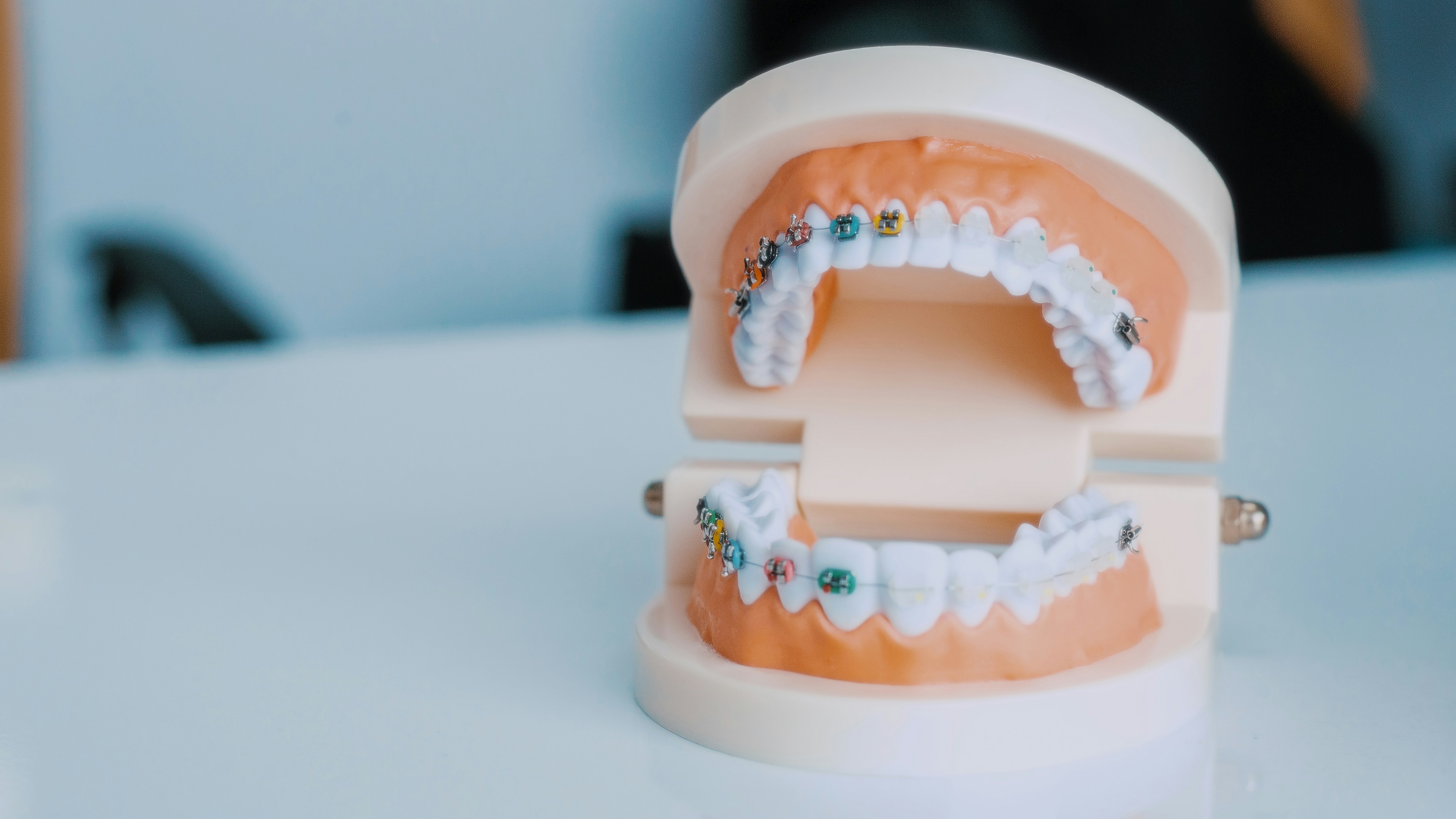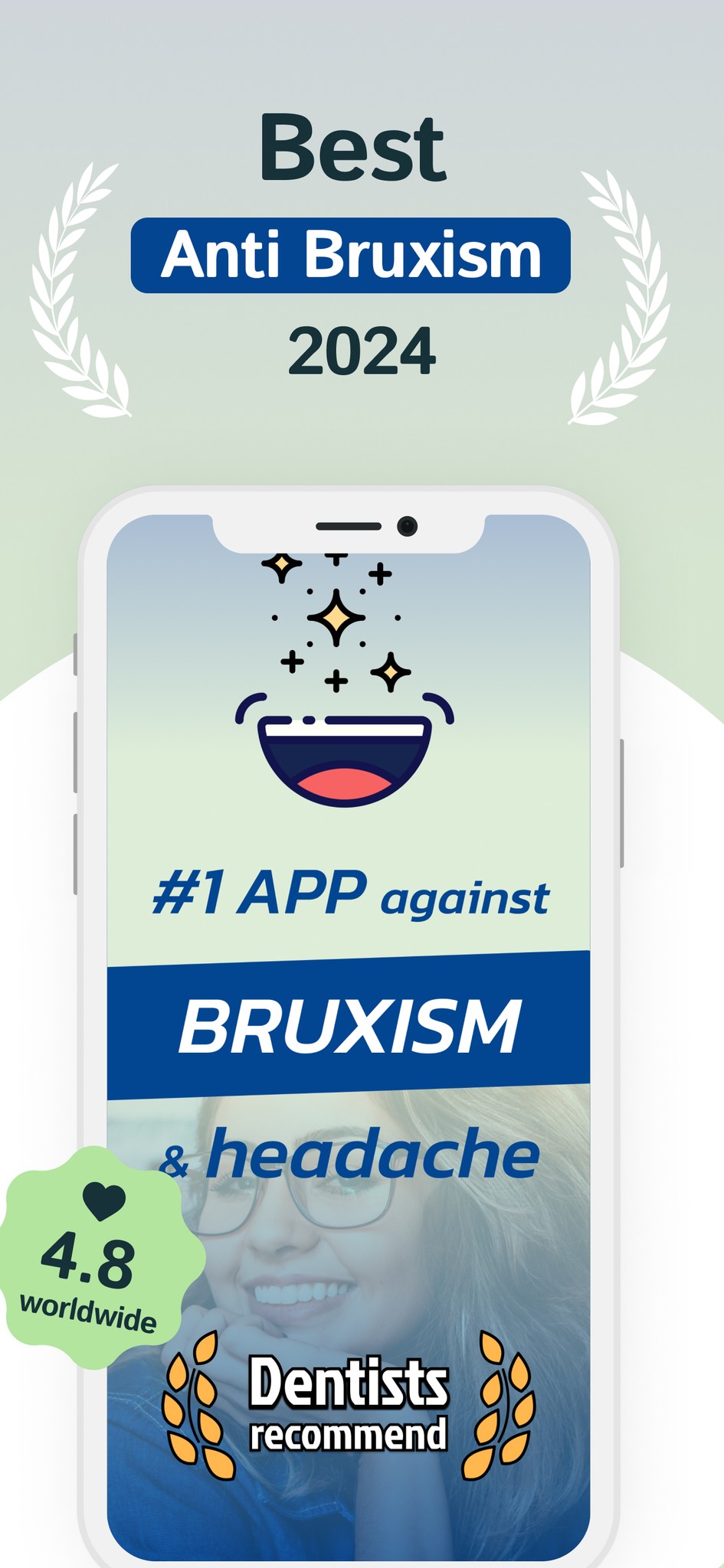
Mar 15, 2024
The Long-Term Effects of Untreated Bruxism and How to Prevent Them
Bruxism, or teeth grinding, might seem like a minor issue at first, but when left untreated, it can lead to serious long-term effects. From tooth damage to chronic pain, the consequences of bruxism can impact your overall health. In this article, we'll explore the potential risks of untreated bruxism and how you can take steps to prevent them—including how Bruxism+ can help you manage your symptoms.
1. Tooth Damage and Wear
One of the most common effects of untreated bruxism is tooth damage. Over time, the constant grinding of your teeth can wear down the enamel, leading to:
Cracked or chipped teeth
Increased tooth sensitivity
Erosion of enamel, which can lead to cavities
If you notice these symptoms, it’s essential to take action. A custom night guard can protect your teeth while you sleep, and tracking your symptoms with the Bruxism+ app can help you stay on top of your treatment plan.
2. Jaw Pain and TMJ Disorders
Untreated bruxism puts a significant amount of pressure on your jaw muscles and joints. This can lead to temporomandibular joint (TMJ) disorders, which cause:
Chronic jaw pain
Difficulty opening and closing your mouth
Clicking or popping sounds in your jaw
Performing daily jaw exercises, like those suggested in the Bruxism+ app, can help relieve tension in your jaw muscles and prevent the onset of TMJ disorders.
3. Headaches and Earaches
Bruxism doesn’t just affect your mouth—it can also cause tension headaches and earaches. The constant clenching and grinding strain your facial muscles, which can lead to:
Morning headaches
Ear pain without an ear infection
Facial discomfort or tightness
Managing stress is key to preventing these symptoms. The Bruxism+ app provides relaxation exercises and stress-reducing tips to help you stay calm and minimize grinding during sleep.
4. Sleep Disruptions
Teeth grinding can also interfere with your sleep quality. Bruxism often occurs during the lighter stages of sleep, causing you to wake up multiple times throughout the night. Over time, this can lead to:
Fatigue and daytime sleepiness
Irritability and difficulty concentrating
Increased stress and anxiety due to lack of sleep
Using the Bruxism+ app to track your nighttime symptoms and create a relaxing bedtime routine can help improve your sleep quality and reduce bruxism episodes.
5. Dental Alignment Issues
In severe cases, untreated bruxism can lead to dental alignment problems. The constant grinding can shift the position of your teeth, resulting in:
Misaligned bite
Increased need for orthodontic treatment
Long-term changes to your facial structure
Regularly monitoring your symptoms and wearing a night guard can help prevent these issues. The Bruxism+ app offers reminders and helpful tips to ensure you stay on track with your treatment.
Conclusion
While bruxism may not seem like a major concern, leaving it untreated can lead to significant long-term health problems. From tooth damage to jaw pain and sleep disruptions, the effects of teeth grinding can negatively impact your daily life. By taking preventive measures, such as using a night guard, practicing relaxation techniques, and tracking your symptoms with the Bruxism+ app, you can manage bruxism effectively and prevent its long-term consequences.
Bruxism, or teeth grinding, might seem like a minor issue at first, but when left untreated, it can lead to serious long-term effects. From tooth damage to chronic pain, the consequences of bruxism can impact your overall health. In this article, we'll explore the potential risks of untreated bruxism and how you can take steps to prevent them—including how Bruxism+ can help you manage your symptoms.
1. Tooth Damage and Wear
One of the most common effects of untreated bruxism is tooth damage. Over time, the constant grinding of your teeth can wear down the enamel, leading to:
Cracked or chipped teeth
Increased tooth sensitivity
Erosion of enamel, which can lead to cavities
If you notice these symptoms, it’s essential to take action. A custom night guard can protect your teeth while you sleep, and tracking your symptoms with the Bruxism+ app can help you stay on top of your treatment plan.
2. Jaw Pain and TMJ Disorders
Untreated bruxism puts a significant amount of pressure on your jaw muscles and joints. This can lead to temporomandibular joint (TMJ) disorders, which cause:
Chronic jaw pain
Difficulty opening and closing your mouth
Clicking or popping sounds in your jaw
Performing daily jaw exercises, like those suggested in the Bruxism+ app, can help relieve tension in your jaw muscles and prevent the onset of TMJ disorders.
3. Headaches and Earaches
Bruxism doesn’t just affect your mouth—it can also cause tension headaches and earaches. The constant clenching and grinding strain your facial muscles, which can lead to:
Morning headaches
Ear pain without an ear infection
Facial discomfort or tightness
Managing stress is key to preventing these symptoms. The Bruxism+ app provides relaxation exercises and stress-reducing tips to help you stay calm and minimize grinding during sleep.
4. Sleep Disruptions
Teeth grinding can also interfere with your sleep quality. Bruxism often occurs during the lighter stages of sleep, causing you to wake up multiple times throughout the night. Over time, this can lead to:
Fatigue and daytime sleepiness
Irritability and difficulty concentrating
Increased stress and anxiety due to lack of sleep
Using the Bruxism+ app to track your nighttime symptoms and create a relaxing bedtime routine can help improve your sleep quality and reduce bruxism episodes.
5. Dental Alignment Issues
In severe cases, untreated bruxism can lead to dental alignment problems. The constant grinding can shift the position of your teeth, resulting in:
Misaligned bite
Increased need for orthodontic treatment
Long-term changes to your facial structure
Regularly monitoring your symptoms and wearing a night guard can help prevent these issues. The Bruxism+ app offers reminders and helpful tips to ensure you stay on track with your treatment.
Conclusion
While bruxism may not seem like a major concern, leaving it untreated can lead to significant long-term health problems. From tooth damage to jaw pain and sleep disruptions, the effects of teeth grinding can negatively impact your daily life. By taking preventive measures, such as using a night guard, practicing relaxation techniques, and tracking your symptoms with the Bruxism+ app, you can manage bruxism effectively and prevent its long-term consequences.
Bruxism, or teeth grinding, might seem like a minor issue at first, but when left untreated, it can lead to serious long-term effects. From tooth damage to chronic pain, the consequences of bruxism can impact your overall health. In this article, we'll explore the potential risks of untreated bruxism and how you can take steps to prevent them—including how Bruxism+ can help you manage your symptoms.
1. Tooth Damage and Wear
One of the most common effects of untreated bruxism is tooth damage. Over time, the constant grinding of your teeth can wear down the enamel, leading to:
Cracked or chipped teeth
Increased tooth sensitivity
Erosion of enamel, which can lead to cavities
If you notice these symptoms, it’s essential to take action. A custom night guard can protect your teeth while you sleep, and tracking your symptoms with the Bruxism+ app can help you stay on top of your treatment plan.
2. Jaw Pain and TMJ Disorders
Untreated bruxism puts a significant amount of pressure on your jaw muscles and joints. This can lead to temporomandibular joint (TMJ) disorders, which cause:
Chronic jaw pain
Difficulty opening and closing your mouth
Clicking or popping sounds in your jaw
Performing daily jaw exercises, like those suggested in the Bruxism+ app, can help relieve tension in your jaw muscles and prevent the onset of TMJ disorders.
3. Headaches and Earaches
Bruxism doesn’t just affect your mouth—it can also cause tension headaches and earaches. The constant clenching and grinding strain your facial muscles, which can lead to:
Morning headaches
Ear pain without an ear infection
Facial discomfort or tightness
Managing stress is key to preventing these symptoms. The Bruxism+ app provides relaxation exercises and stress-reducing tips to help you stay calm and minimize grinding during sleep.
4. Sleep Disruptions
Teeth grinding can also interfere with your sleep quality. Bruxism often occurs during the lighter stages of sleep, causing you to wake up multiple times throughout the night. Over time, this can lead to:
Fatigue and daytime sleepiness
Irritability and difficulty concentrating
Increased stress and anxiety due to lack of sleep
Using the Bruxism+ app to track your nighttime symptoms and create a relaxing bedtime routine can help improve your sleep quality and reduce bruxism episodes.
5. Dental Alignment Issues
In severe cases, untreated bruxism can lead to dental alignment problems. The constant grinding can shift the position of your teeth, resulting in:
Misaligned bite
Increased need for orthodontic treatment
Long-term changes to your facial structure
Regularly monitoring your symptoms and wearing a night guard can help prevent these issues. The Bruxism+ app offers reminders and helpful tips to ensure you stay on track with your treatment.
Conclusion
While bruxism may not seem like a major concern, leaving it untreated can lead to significant long-term health problems. From tooth damage to jaw pain and sleep disruptions, the effects of teeth grinding can negatively impact your daily life. By taking preventive measures, such as using a night guard, practicing relaxation techniques, and tracking your symptoms with the Bruxism+ app, you can manage bruxism effectively and prevent its long-term consequences.
Our latest stories:


Nov 15, 2024
Dietary Changes That May Help Reduce Bruxism Symptoms


Nov 11, 2024
The Impact of Jaw Alignment on Bruxism: What You Need to Know


Nov 8, 2024
Understanding Sleep Apnea and Its Link to Bruxism
See all posts
Extra
Extra
Extra


